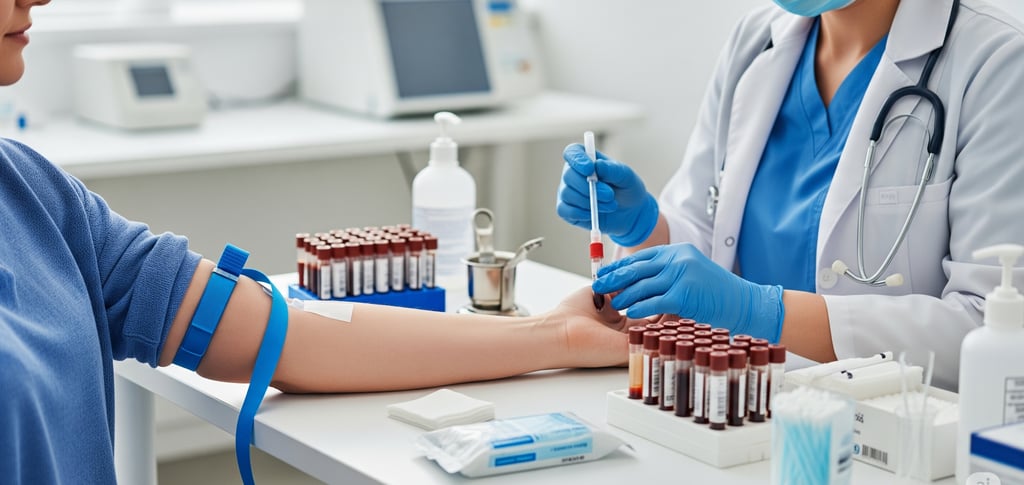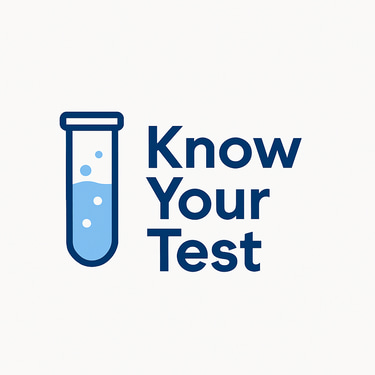Blood Testing – A Complete Guide to Types, Uses, and How to Get Tested
Learn everything you need to know about blood testing, including common types, when to get tested, and how to find reliable labs near you. Understand costs, speed, and accuracy — and discover how direct-to-consumer testing works without insurance or a doctor’s referral."
LABORATORY TESTING


Introduction
Blood testing is one of the most common and important tools in modern healthcare. It allows doctors — and individuals using direct-access services — to check overall health, detect diseases early, and monitor ongoing treatments. Whether you’re doing a routine check-up or investigating specific symptoms, blood tests can provide valuable insights.
What Is Blood Testing?
Blood testing involves collecting a small sample of blood, usually from a vein in your arm, and analyzing it in a laboratory. The results can reveal how well organs are functioning, detect infections, measure nutrient levels, and identify potential health risks.
Common Types of Blood Tests
Diabetes Testing – evaluates blood sugar levels and helps diagnose or monitor diabetes.
Hormone Testing – measures hormone levels to assess issues related to thyroid, reproductive health, adrenal function, and more.
Vitamin & Nutritional Testing – checks vitamin, mineral, and nutrient levels to identify deficiencies or imbalances.
Allergy Testing – detects allergic reactions to foods, environmental triggers, or other substances.
Drug Testing – screens for the presence of prescription or illicit drugs in the body.
Gastrointestinal Testing – analyzes digestive health and detects infections, intolerances, or imbalances in the gut.
Arthritis & Inflammation Tests – identifies markers of joint inflammation and related autoimmune conditions.
STD Testing – screens for sexually transmitted diseases and infections, often with non-invasive sample collection.
When to Get Blood Testing
Many people do blood testing annually as part of a preventive health plan. It’s also recommended when experiencing unusual symptoms, monitoring a chronic condition, or after a doctor’s referral. Direct-to-consumer services make it possible to order tests without insurance or a doctor’s note.
How to Get Blood Testing Near You
Many direct-access providers, such as HealthLabs, partner with major laboratory networks like LabCorp and Quest Diagnostics. These labs are CLIA-certified, HIPAA-compliant, and often the same ones used by doctors. With over 4,500 locations in the U.S., you can order your test online and visit a lab without an appointment.
Cost, Speed, and Reliability
Blood tests range from under $50 for basic screenings to several hundred dollars for specialized panels. Results are usually available within 1–3 business days. Accredited labs follow strict protocols to ensure accuracy and privacy.
Final Thoughts
Regular blood testing is a powerful tool for maintaining your health, preventing serious conditions, and guiding treatment decisions. Whether through your doctor or direct-access services, reliable testing is closer than you think.
Disclaimer
This content is for informational purposes only and does not substitute medical advice. If you have symptoms or questions, consult a qualified healthcare provider.
References:
National Institutes of Health (NIH) – What You Need to Know About Blood Testing: MedlinePlus Medical Test
HealthLabs - Lab Tests Online | Order Fast, Affordable Health Lab Testing
Insights
Understanding lab tests for better health decisions.
Support
© 2025. All rights reserved.
